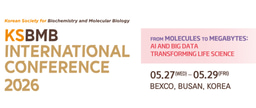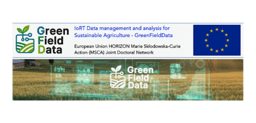Riding the wave of new scientific papers: vintage search methods also have value

We live in great times. In principle, we have the entire scientific literature at our finger tips. PubMed is an efficient and very well-managed database that responds in seconds to our bibliographical requests and spills out all articles mentioning our search term. Thus we can stay in control of the ever increasing wave of scientific publications. Isn’t that just perfect? Well, of course it is fantastic – but there are also problematic issues. Therefore, I argue that especially graduate students and postdocs should consider integrating a vintage element into their literature searches.
Let’s look back at how things were in primordial times, before PubMed and the internet were present. How did you find out about literature then? Well, the procedure was complicated and required a substantial amount of effort. You had to go to your institutional library and look through big books of biological abstracts that summarized the citation details and abstracts of articles published in the past week, indexing some keywords. Furthermore, there were services that published the table of contents of all journals in a given field in weekly paperbacks. This was the hardware available a few decades ago. It meant that you had to spend hours in the library going through these books, finding articles of interest, making copies of them from the printed journals or sending out postcards asking for reprints – a significant investment of time and effort. And still you could not be sure not to miss a relevant publication by chance. This is a scenario that is certainly hard to imagine if you are a graduate student or postdoc nowadays. So everybody would agree that things have changed for the better. Today, we can spend much less time on these issues and we can be sure to obtain a complete bibliographical account on a specific search term.
But exactly this is the problem. The current system favours gathering information on specific terms and narrow topics because if you don’t follow this strategy, you will be flooded with thousands of hits. We have learned to live with this and it works very well. For example, in my lab, if we come across a new protein in the course of our studies, my students come back swiftly with a thorough and deep analysis of the literature on precisely this protein. We can immediately build on this and without delay incorporate the findings into our research program. However, I want to argue that we lost something important on the way: the comprehensive screening of new publications.
The good old times?
This was an intrinsic component of the pre-internet paper-based system where you had to read the title of each article to identify the relevant ones. I vividly remember that during my graduate studies I found many articles that provided important information for my project or new directions, which I would never have come across nowadays when just searching for keywords. This open approach to searching the literature does not seem to be popular anymore – on the one hand, because it is no longer needed to obtain specific information and, on the other hand, because the expansion in the production of scientific literature has been so enormous in the past decades that is seems a futile endeavour to try to stay on top in general. The latter is certainly true. Probably a million papers are added each year in the molecular life sciences. However, focusing on search terms only creates an information bubble and detaches you from scientific progress in your broader field. I think the ‘PubMed-only’ generation faces the problem of drifting away from developments in the broader area of the molecular life sciences. This goes along with the limiting tendency of many scientists to prioritise scientific meetings on focused topics over conferences covering general areas.
The best of both worlds?
The question is whether there is an option in between the old school and new school of screening new publications. My suggestion is to integrate elements of the two worlds: the ‘manual’ screening of tables of content and the focused keyword search. If you are a young scientist, reading tables of contents probably seems anachronistic as most of the articles encountered are far away from what you are working on. But this is exactly the point of doing it. If you regularly scan the contents of a number of biochemical and general interest journals (say a dozen) you will get a sense for the current state of research, of new developments and advances as well as disputes. This implies of course that you don’t stop at reading titles of papers but also some abstracts and at least one ‘general interest’ paper per week, as a rule of thumb. This will allow you to think outside the box, look at your own project from a different perspective and, in the best of cases, get new ideas for your own research. Think about it! At first glance, you may consider this is a waste of time compared to reading one of the many papers on the very protein you work with. Of course, you should not ignore the literature close to your project but invest some extra time to get a feeling of the bigger picture.
You could also argue that there are a number of new possibilities to keep track of new publications such as blogs, aggregation sites on certain topics, or digests of the literature by peers, and there is Twitter, Facebook and so on. These second-hand options are all useful but, to my mind, none of them can replace your own efforts. At an early-career stage, you may be still searching for ‘your’ topic and personal approach to science and therefore need to develop a broader perspective. The ‘vintage’ contents-scanning approach is a very useful component in this endeavour.
More tips on tracking the scientific literature
Landhuis, E. (2016) Scientific literature: Information overload. Nature 535, 457–458
Pain, E. (2016) How to keep up with the scientific literature, Science Careers, DOI: 10.1126/science.caredit.a1600159
Johannes Buchner
Chemistry Dept, Technical University of Munich, Germany
J.B. is the FEBS Chair 2017
Photo by likoper
This article was first published in FEBS News February 2017, pages 16–17: http://www.febs.org/news/newsletter





Join the FEBS Network today
Joining the FEBS Network’s molecular life sciences community enables you to access special content on the site, present your profile, 'follow' contributors, 'comment' on and 'like' content, post your own content, and set up a tailored email digest for updates.